Spread the love! If you like what you are seeing, share it on social networks and let others know about The Paul McCartney Project.
About
On this day, advanced copies of Paul McCartney’s debut solo album, “McCartney“, were sent to the UK press, accompanied by a press kit. Included in the press kit was a Q&A, where Paul strongly suggested the Beatles’ adventure was over:
Are you planning a new album or single with the Beatles?
No.
Is this album a rest away from the Beatles or the start of a solo career?
Time will tell. Being a solo album means it’s the start of a solo career… and not being done with the Beatles means it’s a rest. So it’s both.
Is your break from the Beatles temporary or permanent, due to personal difference or musical ones?
Personal differences, business differences, musical differences, but most of all because I have a better time with my family. Temporary or permanent? I don’t know.
From “McCartney” press release Q&A
When Paul was interviewed by Life Magazine in November 1969 saying “The Beatle thing is over“, nobody reacted. But this Q&A was interpreted as the announcement of the split of The Beatles. Later in the day, Apple Records felt obliged to issue a statement denying the Beatles were going to split:
This is just not true. Although it is true that there are no plans at the moment for more Beatles recordings, this is quite normal. Next month, their new LP will be issued. It has already been recorded so, consequently, as there is already material available, there are no plans for more recordings. I hope that The Beatles will get together for another recording session after the summer.
[Paul] communicates by telephone and, as he has got recording studios at his home, it is not necessary for him to come in. Paul will issue a statement today with the release of his new album, but any critical statements do not mean a real break-up of the group!
Mavis Smith, assistant to Derek Taylor, head of PR
On this day, Paul also phoned John Lennon to let him know that the press kit had been issued and that it would make the news the day after.
I received a phone call from Paul on Thursday afternoon. He said, ‘I’m going to leave The Beatles as well.’ I was happy to hear from Paul. It was nice to find that he was still alive! Anyway, Paul hasn’t left… I sacked him.
John Lennon – From “The Beatles: Off the Record” by Keith Badman
He called me in the afternoon of that day and said, ‘I’m doing what you and Yoko was doing last year. I’m putting out an album and I’m leaving the group, too,’ and I said, ‘Good!’ I was feeling a little strange because he was saying it this time, although it was a year later, and I said, ‘Good,’ because he was the one that wanted The Beatles most, and then the midnight papers came out …
John Lennon – From “The Beatles: Off the Record” by Keith Badman
Journalist Ray Connolly, from the Evening Standard, remembered:
I received [one press kit] at the Evening Standard, but the story was embargoed until the next day, so I didn’t print anything. But Don Short at the Daily Mirror did.
Ray Connolly, from “You Never Give Me Your Money: The Battle For The Soul Of The Beatles“, by Peter Doggett
The Daily Mirror, dated April 10, 1970, started to be available at the end of the day in London, with the headline on the front page, “Paul is quitting The Beatles“.
I issued the album and did this press release, which virtually had the announcement. I finally blew the whistle. And John was annoyed. He told me later that he wanted to be the one who announced it. But I felt that three or four months was enough to wait around. Either we were going to fuck about for another year, or we had to actually say to people, ‘You know what? About three or four months ago we actually broke up. I haven’t worked with them or spoken to them since then’
Paul McCartney – From “Conversations with McCartney” by Paul du Noyer, 2016
We were finishing off Let It Be and I was working on my own album [McCartney). The problem was that, when I came to release my thing, I suddenly realised I had to do something about publicity. Someone suggested I just fill in a Q&A and send it out with the albums when they went out to the papers. In the Q&A, I just decided to come out and say it. I was pissed off at having to hide from our fans the fact that we weren’t coming back. Maybe what I said was a bit succinct but, what the hell, everyone else was being succinct. There was no point in me beating around the bush. After all, they’d already broken the group up. George and Ringo had left, then come back. John had left and not come back. How fucking succinct is that?
Paul McCartney – Interview with MOJO, 2004
For the release of Paul’s solo album we did a Questionnaire in the press office, a general issue thing-. ‘Will you ever appear with The Beatles? Do you believe in this? What are your plans?’ etc. I thought he very generously answered — in an uptight way, but nevertheless answered – the questions, more or less ruling out reunion or working with The Beatles: ‘And I’m now working with Linda and this is the way I want it to be…’ That was a very unhappy time. That was the pits.
Derek Taylor – Apple press officer – From the Beatles Anthology book, 2000
Inside the album package was an interview Paul had done with himself, making up the questions as well as the answers. It was self-serving, vain, and painted him in the poorest light. But it telegraphed one irrefutable message: the Beatles were dead.
Peter Brown – From “The Love You Make“, 2002
After the Beatles split, nobody said anything. Then you put up this question/answer thing in the sleeve of McCartney LP. Why?
Now, see, that’s one thing that really got misunderstood. I had talked to Peter Brown from Apple and asked him what we were going to do about press on the album. I said, ‘I really don’t feel like doing it, to tell you the truth,’ but he told me that we needed to have something. He said, ‘I’ll give you some questions and you just write out your answers. We’ll put it out as a press release.’ Well of course, the way it came out looked like it was specially engineered by me. I was digging at John really. There was no other way I could say it because the question was: ‘What do you think of John and Yoko’s music?’ and I said, ‘Well, it doesn’t bring me alot of pleasure.’ It was political, depending on how I said it. I was trying to say something without really saying, ‘I hate them!’ I was trying to say, ‘Well, they are not too cool. As you can see I am a little cool on this.’ I was just trying to hate John… a bit. All this was included in the albums we gave to the press, but the word got ’round that I put this interview in the real albums, which I didn’t. But it got around that I put out this really cutting statement. Looking back on it now, and not being in the mood I was in in that period, going through all sorts of changes, I can see how it looked to ordinary people who didn’t have the problems I was facing. As I say, I just feel that I have a kind of knack for doing crazy things like that. It’s an unfortunate thing in my character. You know, your character kind of sharpens up when it becomes your image. Now for me, this is a very strange game really, to meet the press, deal with the media. You know, I’m not a publicist, but being in the group for all that long time, you learn a way of dealing with it. You become a media person on the other side of the media. Before I used to spend literally as much time as you do doing interviews. So you become that kind of person. The rest of the group really hated it with a passion.
Paul McCartney – From interview with Music Express, 1982
I didn’t want to do a press conference to launch the album because whenever I’d meet a journalist, they always floored me with one question: they’d say, ‘Are you happy?’ and it almost made me cry. I just could not say, “Yes. I’m happy,’ and lie through my teeth, so I stopped doing interviews. Peter Brown, who was at Apple at that time, said, ‘What are you going to do about publicity?’ I said, I don’t really want to do any.’ He said, ‘It’s a new album. You’ll kill it. Nobody’ll even know it’s out at all. You should do something.’ I said ‘Well, how do you suggest we do it?’ He said, ‘Maybe a questionnaire?’ I said, ‘Okay, look, you write some questions that you think the press wants to know. Send ’em over to me and I’ll fill it out but I can’t face a press conference.’ So the questionnaire came, and Peter Brown realised that the big question’ was the Beatles so he put in a couple of loaded questions and rather that just say, ‘I don’t want to answer these,’ I thought, Fuck it. If that’s what he wants to know, I’ll tell him. I felt I’d never be able to start a new life until I’d told people.
Paul McCartney, in “Many Years From Now” by Barry Miles, 1998
We were actually enjoying ourselves like children, Linda and I, actually enjoying life for the first time in a while. And I had put the killer scoop in there, and then I just sent this out to the press. Only the press got the ones with the questionnaire in. I think some of the press thought this was how I was releasing the album, with this questionnaire in it, so a few people said, “This is outrageous!’ and John, I think, was very hurt.
I personally think he was hurt because he wanted to tell. I don’t think it was anything more than that, I think it was just straightforward jealousy. He wanted to be the one, because he’d been the one to break up the Beatles and he hadn’t had the nerve to follow it through because Klein had told him, ‘Don’t tell anyone. Keep this thing rolling as long as we can.’ But we’d not seen each other for three or four months and I had been ringing, calling George and Ringo and asking ‘Do you think we’ll get back together?’ ‘Well, I don’t know, what about John?’ and I’d ring John. ‘Oh no! Fucking hell!’ So it was obviously not on. So I let the news out. So I was not loved for that by the other guys and that started a war between us.
Paul McCartney, in “Many Years From Now” by Barry Miles, 1998
For business reasons, we had agreed to keep quiet about the Beatles’ split, but after a while, I was going crazy with the hurt and the disappointment of it all, the sorrow of losing this great band, these great friends. I thought it was unfair not telling people, so I broke the news in a press release for the McCartney album. Not being in the greatest frame of mind, I was dreading the press asking me, ‘Are the Beatles happy?’ I didn’t want to lie through my teeth. So I announced in a press release that the Beatles had broken up. In actual fact, the breakup had happened months before, and it was John who did it. But it doesn’t matter who broke the Beatles up – the Beatles were ready to breakup. We’d come full circle and now we had to get on to something new, all of us.
Paul McCartney – From “Wingspan: Paul McCartney’s Band on the Run“, 2002
Peter Brown [Paul’s assistant at Apple] said, “You’re putting a record out and you’ll need to do publicity.” Well, there was no way I could sit around and do a press conference. But I recognised the need for some sort of publicity. So I said, “I’ll tell you what, why don’t you do some questions for me, I’ll do a Q&A, and then stick that out, make that into a press release or something.” So he did the questions that are on that sheet, and just sent it round to me with a space.
Paul McCartney, from the “McCartney – Archive Collection” book, 2011
I’ll tell you what happened, from my recollection. Peter Brown said you’re putting a record out, so you’ll need to do publicity. There was no way I could sit around and do a press conference. But I recognised the need for some publicity. So I said, ‘What?’ He said, “Well, press conference, interviews, like you normally do’ I said, ‘I can’t do that. Why don’t you do some questions for me and then stick that out, make that into a press release or something.’
So he did the questions that are on that sheet, and sent it round to me with a space. I just put in, you know: ‘Are the Beatles going to re-form?’ Now, the thing with the Beatles was, we weren’t telling anyone. Because this certain American businessman had said, “Don’t tell anyone, because I’m gonna renegotiate the contracts with Capitol, et cetera, and they don’t need to know you’ve broken up. That would make it difficult for me to renegotiate a new deal’
So we were all keeping schtum. But I was pissed with that idea, because I thought the Beatles have always been about honesty, and here we are skulking round like a bunch of wimps, not telling anyone. But we’d broken up. And believe me, I went back and George went back and we all went back and said, ‘Hey, shall we not break up?’ But it was like, “No, we’re breaking up.
So when the question came up in the questionnaire, I said, ‘No, we’re not re-forming.” Or whatever. I dropped the truth into that interview.
The idea came up. Just slip it in the press releases. You don’t need to do a publicity thing; all the people in the press would get free copies, as they always did and still do. So it was a press release. But it looked like it was part of the album. I don’t think people got it in the shops, to my recollection. It was just the press copies, and I thought, well, that’ll do it. If the Evening Standard wants to know what’s going on, there’s my press release.
So that was that. But the perception of it looked cold and calculating. ‘He’s just stuck this in. What is the guy on? And he’s suing the Beatles! What a bastard’ I caught it in the neck for that. I had to ride that wave of antagonism, knowing what I had done was right. And that in a way, I was just answering the questions that this guy had set me, like an exam.
Paul McCartney – 2010 interview – From “Conversations with McCartney” by Paul du Noyer, 2016
When people say I let it out, it was actually months after we had broken up. No one was saying anything and I was putting out this crazy press release with the McCartney album because Peter Brown said to me, ‘We need some press on this. You’d better do something,’ and I didn’t want to be interviewed. I didn’t feel secure enough to do that. So I said, ‘Okay, we’ll do a question and answer thing.’ So I said to Peter, ‘Write me out a questionnaire of what you think they’d ask me.’ He wrote it all out and I just filled it all in, like a questionnaire, and it all came out weird.
Paul McCartney – From “The Beatles: Off the Record” by Keith Badman

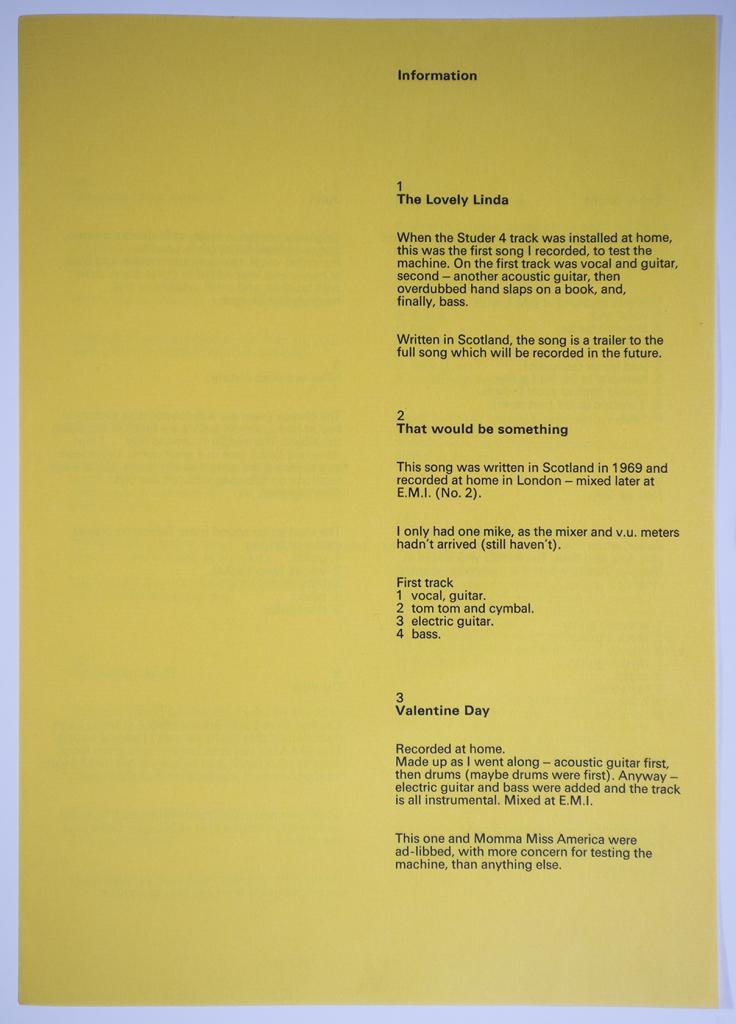
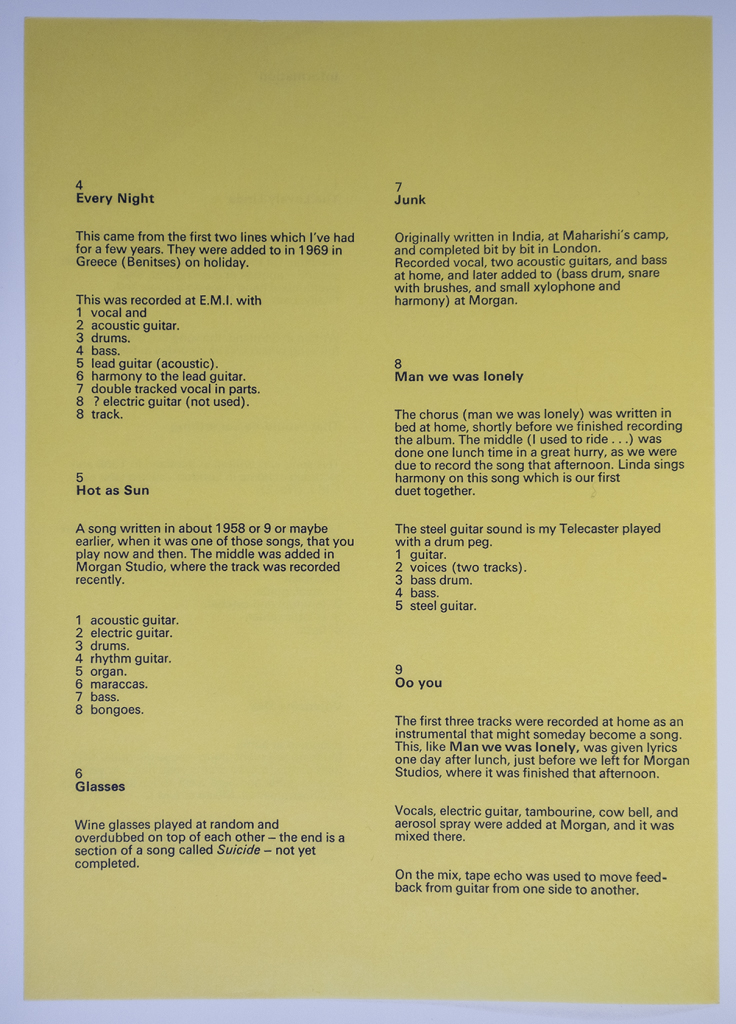
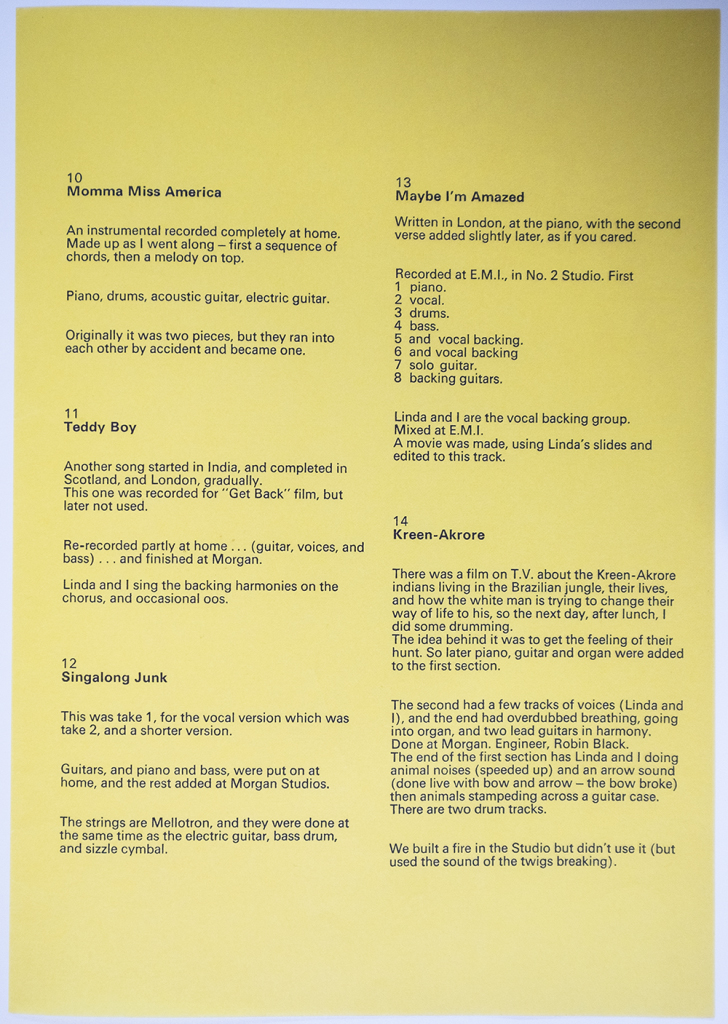


Last updated on August 30, 2023
Going further
The Beatles Diary Volume 1: The Beatles Years
"With greatly expanded text, this is the most revealing and frank personal 30-year chronicle of the group ever written. Insider Barry Miles covers the Beatles story from childhood to the break-up of the group."
We owe a lot to Barry Miles for the creation of those pages, but you really have to buy this book to get all the details - a day to day chronology of what happened to the four Beatles during the Beatles years!
The Beatles Diary Volume 2: After The Break-Up 1970-2001
"An updated edition of the best-seller. The story of what happened to the band members, their families and friends after the 1970 break-up is brought right up to date. A fascinating and meticulous piece of Beatles scholarship."
We owe a lot to Keith Badman for the creation of those pages, but you really have to buy this book to get all the details - a day to day chronology of what happened to the four Beatles after the break-up and how their stories intertwined together!
The Beatles - The Dream is Over: Off The Record 2
This edition of the book compiles more outrageous opinions and unrehearsed interviews from the former Beatles and the people who surrounded them. Keith Badman unearths a treasury of Beatles sound bites and points-of-view, taken from the post break up years. Includes insights from Yoko Ono, Linda McCartney, Barbara Bach and many more.
Maccazine - Volume 40, Issue 3 - RAM Part 1 - Timeline
This very special RAM special is the first in a series. This is a Timeline for 1970 – 1971 when McCartney started writing and planning RAM in the summer of 1970 and ending with the release of the first Wings album WILD LIFE in December 1971. [...] One thing I noted when exploring the material inside the deluxe RAM remaster is that the book contains many mistakes. A couple of dates are completely inaccurate and the story is far from complete. For this reason, I started to compile a Timeline for the 1970/1971 period filling the gaps and correcting the mistakes. The result is this Maccazine special. As the Timeline was way too long for one special, we decided to do a double issue (issue 3, 2012 and issue 1, 2013).
If we like to think, in all modesty, that the Paul McCartney Project is the best online ressource for everything Paul McCartney, The Beatles Bible is for sure the definitive online site focused on the Beatles. There are obviously some overlap in terms of content between the two sites, but also some major differences in terms of approach.

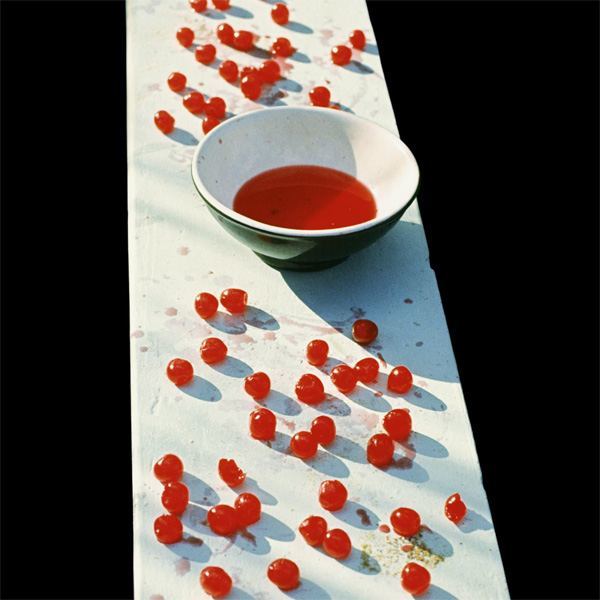



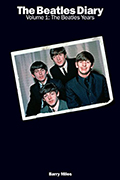
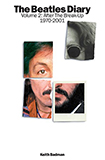
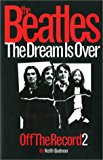
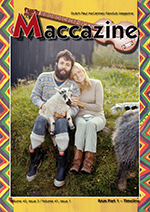
Contribute!
Have you spotted an error on the page? Do you want to suggest new content? Or do you simply want to leave a comment ? Please use the form below!